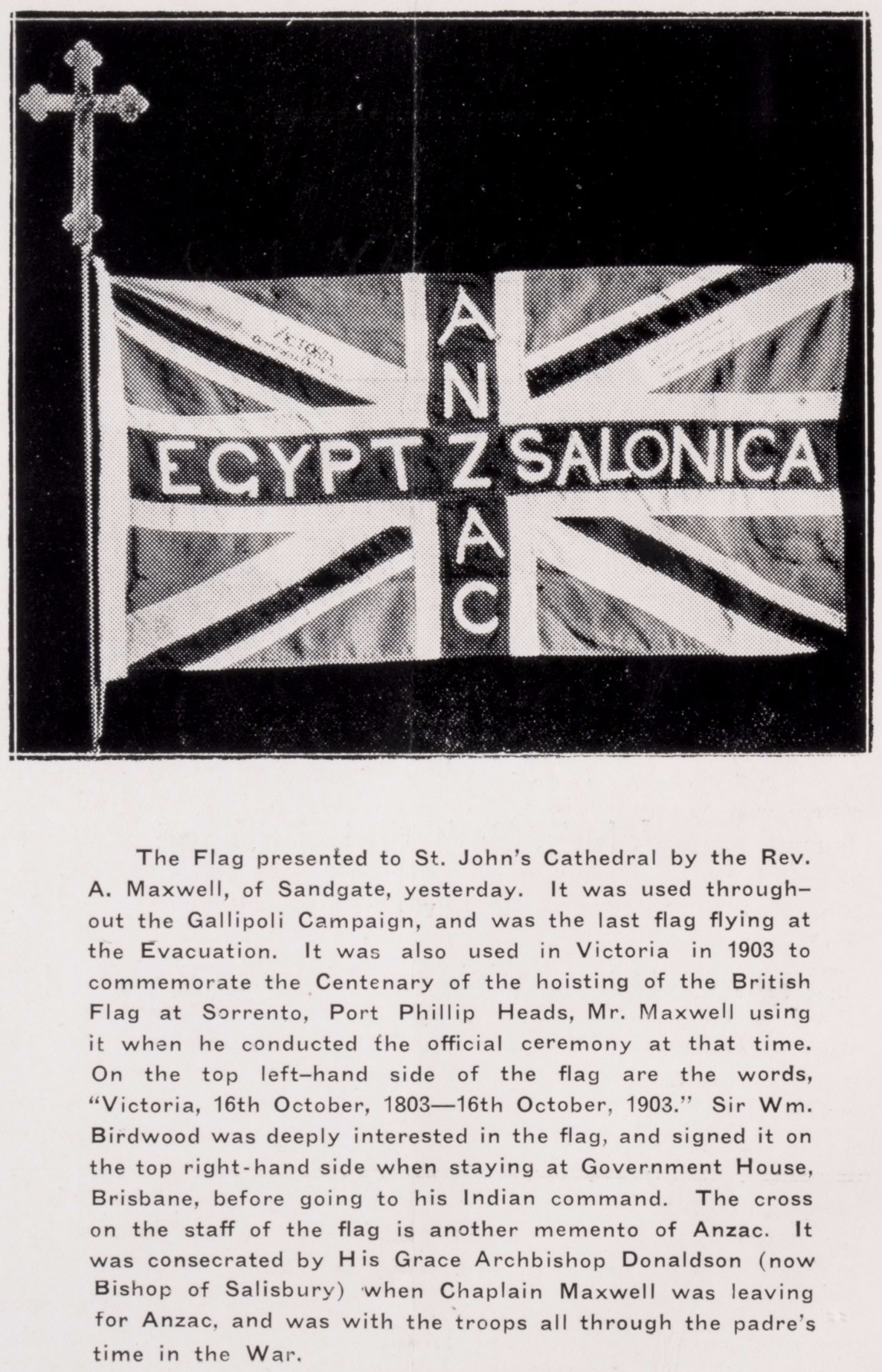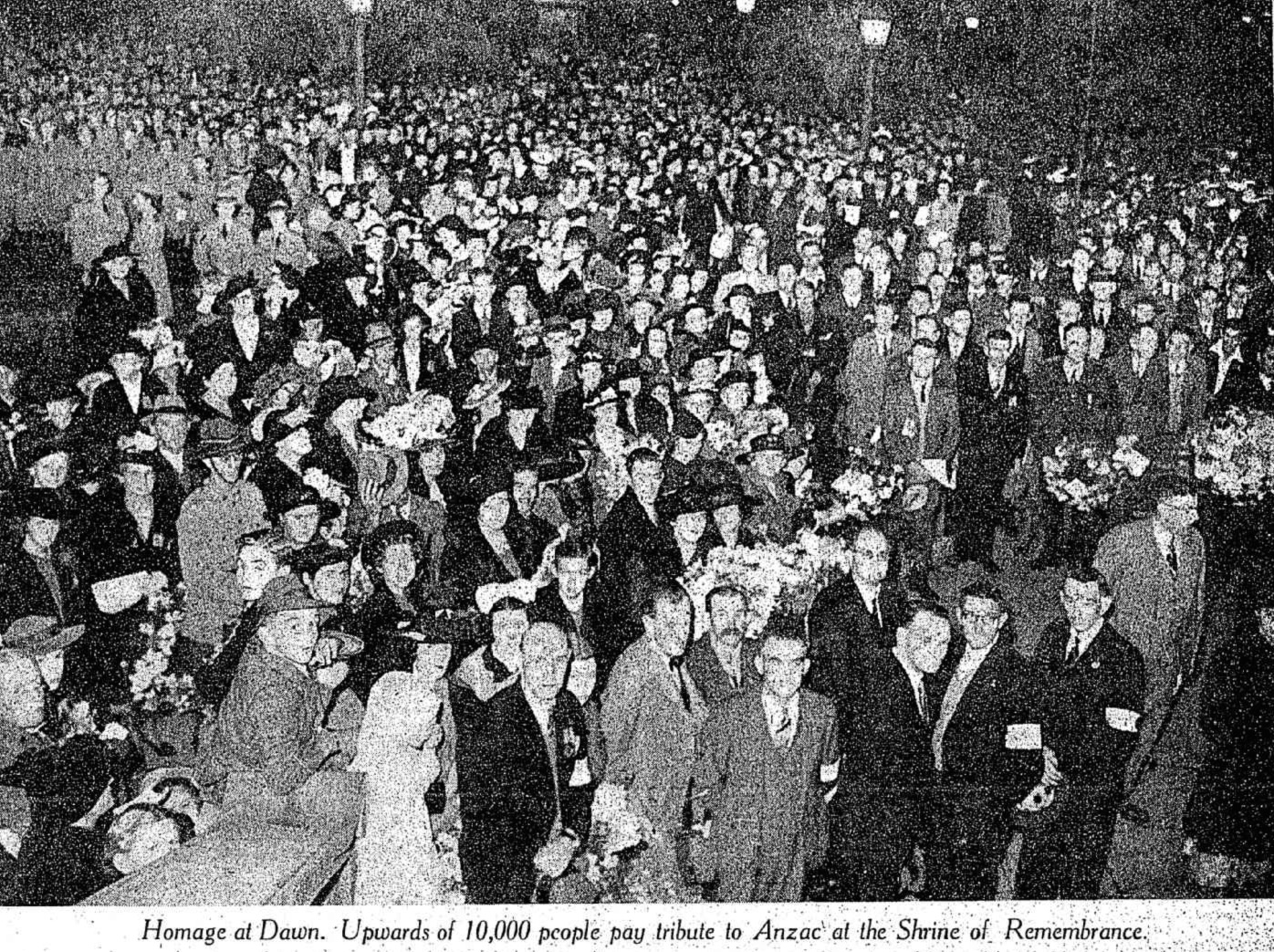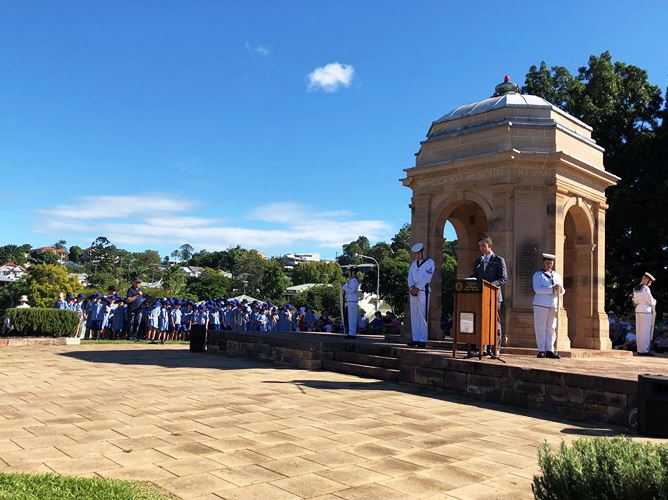Guide, philosopher, friend
‘GUIDE,
PHILOSOPHER
AND FRIEND’
Late Canon Garland
THERE are hundreds of people from overseas who will acknowledge a debt of gratitude to the late Canon Garland [ David John Garland ] as the man who extended them a helping hand when they set foot on Queensland.
Not only did he put them at ease in the friendship of fellow immigrants or relatives, but he frequently made a personal matter of their progress and was guide, philosopher and friend in their time of need.
There was no better-known figure in Anglican circles in Brisbane than the late Canon Garland, who had been prominent from the outset in various departments of the Church’s work apart from his parish.
Amongst other notable things he was mainly responsible for the carrying of the referendum on the question of Bible teaching in State schools many years ago.
He was born in Dublin 75 years ago, but came to Australia as a young lawyer, and for a while he was in a lawyer’s office here, but in 1889, at Grafton, was ordained a deacon and entered the ministry.
He served as a deacon at Quirindi, Narrandera and Grafton until 1892, when he went to Perth and was ordained a priest.
His gift for organisation was recognised soon afterwards when he was appointed Registrar and Diocesan Secretary. He became a Canon of the Perth Cathedral in 1900.
Three years later he came to Queensland as Administrator of the Diocese of North Queensland. In the north he filled the offices of rector of Charters Towers, then Canon of Townsville Cathedral, and later Archdeacon.
In 1907 he came to the Brisbane Diocese, where he was rector of Holy Trinity, Woolloongabba, and of St. Barnabas’, Ithaca, from 1913 until his death.
‘RECRUITING ACTIVITIES’
At the outbreak of the Great War he became honorary secretary of the recruiting committee for Queensland and northern New South Wales. Later he saw active service as a chaplain with the Australian troops in Egypt and Palestine.
He was one of the leaders of the Anzac Day commemoration organisation [ sic, ANZAC Day Commemoration Committee (Queensland) Incorporated ], and was always a prominent figure at services on that day.
He was also a founder and director of The Soldiers’ Church of England Help Society.
He has been father to hundreds of English lads who have migrated to Australia, and for many years he had attended the offices of The New Settlers’ League daily. He was active in immigration matters before the war, and immediately afterwards he resumed this work.
‘WORK FOR MIGRANTS’
As director of immigration for the Church of England and as president of The New Settlers’ League [ The New Settlers’ League Queensland Division ], Canon Garland played a more vigorous part in immigration than probably any other person in Queensland.
He had certainly won by his hard work the honour of the Order of the British Empire, which was conferred upon him in 1934.
It was not generally known that he had also conferred upon him the Knighthood of the Holy Sepulchre, an honour from the Patriarch of Jerusalem in recognition of his services to the Greek Orthodox Church.
He was a man of sturdy character and strong convictions, who had the will and the all-important ability to fight for what he believed to be right. He was always an ardent supporter of every move to help fill the empty spaces of Australia with people of British blood.
ECCLESIASTICAL LAWYER.
The late Canon Garland was regarded as the outstanding clerical member of Synod for many years as an ecclesiastical lawyer. In this, naturally his training in civil law stood him in good stead. When the constitution of the Provincial Synod was under consideration many years ago he took strong exception to some of its features.
The constitution had been drafted by such prominent lawyers as the late Mr. Arthur Feez, K.C. [ Arthur Herman Feez ], and the late Dr. F.W.S Cumbrae-Stewart [ Francis William Sutton Cumbrae-Stewart ], later Garrick Professor of Law In the University of Queensland, but so convincingly did Canon Garland put his case that Synod agreed to his amendments.
Canon Garland was a strong man and when he took up a cause or an attitude he left nothing to chance in his efforts to win the majority to his way of thinking. He had a clear, resonant, pleasing voice and his matter invariably was well arranged, whether in preaching or in discussion.
Mrs. Garland [ Mary Garland, formerly Hawkins, neé Hadfield ] died several years ago. Mr. D. J. Garland, jun. [ David James Garland ], who is an engineer in the Main Roads Commission, survives.
Tributes From
Prominent Men
“Played Notable Part.”
– The Premier
“It was with deep regret that I heard of the death of my esteemed friend, Rev. Canon Garland,” said the Premier (Mr. W. Forgan Smith) [ William Forgan (“Bill”) Smith ] this morning.
“During the last 25 years I was associated with him in many public activities, and found him to be a man of remarkable capacity, untiring and zealous in the discharge of his duties.
“He was a great churchman, a splendid citizen, a kind and understanding friend, and he played a notable part in the life of Queensland.
“All who knew him will mourn his loss.”
Will Speak To-morrow.
– Archbishop Wand
Archbishop Wand [ John William Charles Wand ] will pay a tribute to the life and work of Canon Garland at the funeral service to-morrow.
“Greatly Missed.”
– Archbishop Duhig
Archbishop Duhig [ James Vincent Duhig ] said that he first met the late Canon at Charters Towers in 1916. Archbishop Duhig then had just been appointed Bishop of Rockhampton.
“We have been friends ever since,” said Archbishop Duhig, “and I am very sorry to learn of his death.
“I beg to offer my sympathy to his son and to the parishioners of St. Barnabas’ Church.
“The late Canon was one of the most familiar figures in Brisbane, and will be greatly missed.
“He was a kind-hearted man and always willing to associate him self with any good cause, especially one of a patriotic or charitable character.”
“Fearless Witness.”
– Rev. H.M. Wheller
The president of the Council of Churches (Rev. H.M. Weller) [ Herbert Manuel Weller ] said: “In company with the Church of England, the members of the Free Churches very much regret Canon Garland’s passing.
“We remember with very real gratitude his active participation in the campaign for the introduction of the Bible into the State schools of Queensland.
“Canon Garland had many friends out side his own communion.
“Though some of us wore far removed from him in re legions customs, we nevertheless had a sincere appreciation of his qualities and his fearless witness for the cause of religion.
“He has played a great part in the religious life of Queensland.”
“Soldiers’ Friend.”
– Mr. R.D. Huish
In paying tribute to the late cleric, the State president of The Returned Sailors and Soldiers’ Imperial League of Australia (Mr. R.D. Huish) [ Sir Raymond Douglas (“Bob”) Huish ] referred to him as a great friend of the soldiers.
“I am deeply sorry to hear of his death, and on behalf of every member of the League would offer condolences to the bereaved,” said Mr. Huish.
“The late Canon Garland will be sadly missed in many public movements in this State. His absence from the Anzac Day commemoration services will be most marked.
“It is difficult to visualise an Anzac Day without him.”
“Keen Interest in
Public Matters.”
– Mr. E.M. Hanlon
“I was very grieved to hear this morning of the passing of Canon Garland,” said the Minister for Health and Home Affairs (Mr. E.M. Hanlon) [ Edward Michael (“Ned”) Hanlon ] today.
“As a matter of fact I had expected to be having lunch with him tomorrow instead of attending his funeral. Both the Premier and myself were to be present.”
Mr. Hanlon added that Canon Garland had been a close friend for many years. He was a man who had a remarkable understanding of public questions and matters of Government.
He took a keen interest in public health and his activities in Charters Towers many years ago led to the clearing up of the typhoid epidemics in that city.
The Minister said that during the time he had been in control of his department Canon Garland had been very keenly interested in the work as he always devoted attention to prison welfare, State children, and the needs of the poor generally.
All returned soldiers would regret the passing of this outspoken old friend of the Diggers, not only ex-soldiers of the last war, but also those who served in the South African War.
– from page 7 of “The Telegraph” (Brisbane), 9 October 1939.
PICTURED AT THE TOP OF THE PAGE: Fr Garland (at left) pictured in clerical collar in his late thirties when he was throwing himself whole-heartedly into the Bible in State Schools campaign across Queensland and New Zealand; then (at right) in his late fifties in his Chaplain Lieutenant-Colonel’s uniform.

ABOVE: Fr Garland’s obituary appeared in many newspapers and on radio airwaves. This excerpt appeared on page seven of “The Telegraph” newspaper of 9 October 1939, the afternoon he died.


